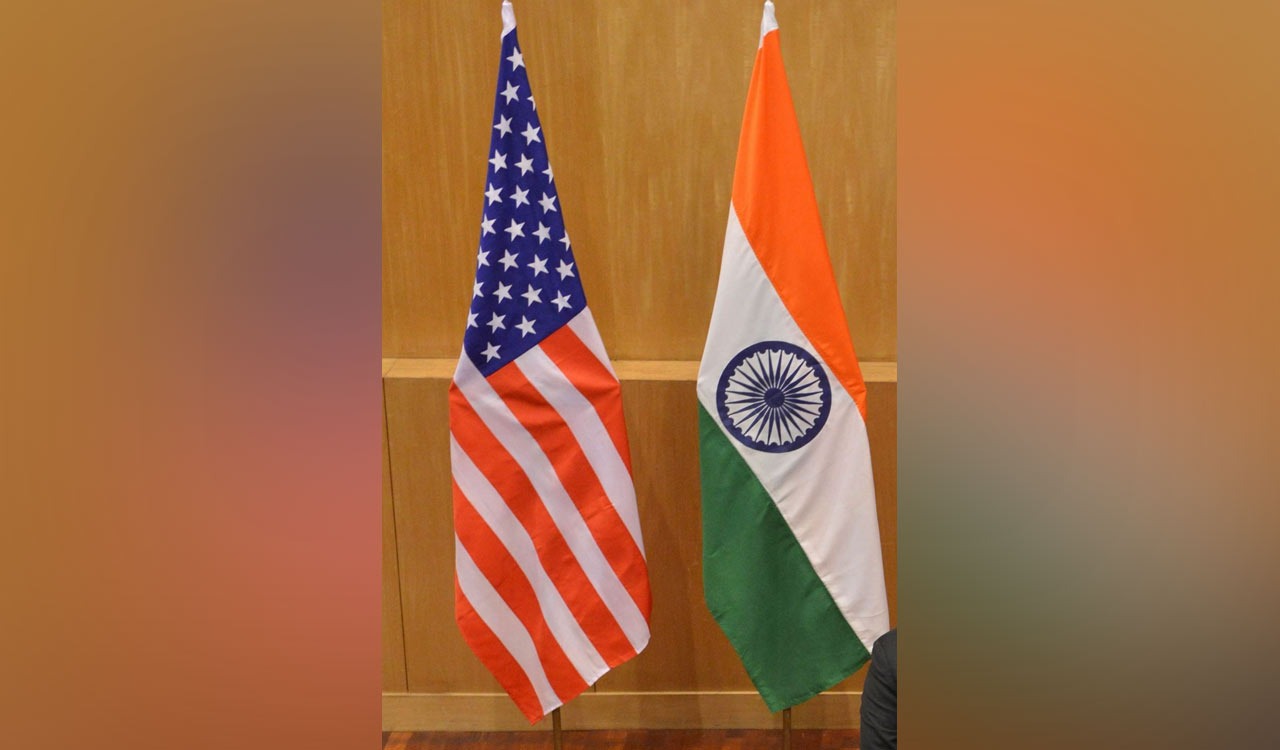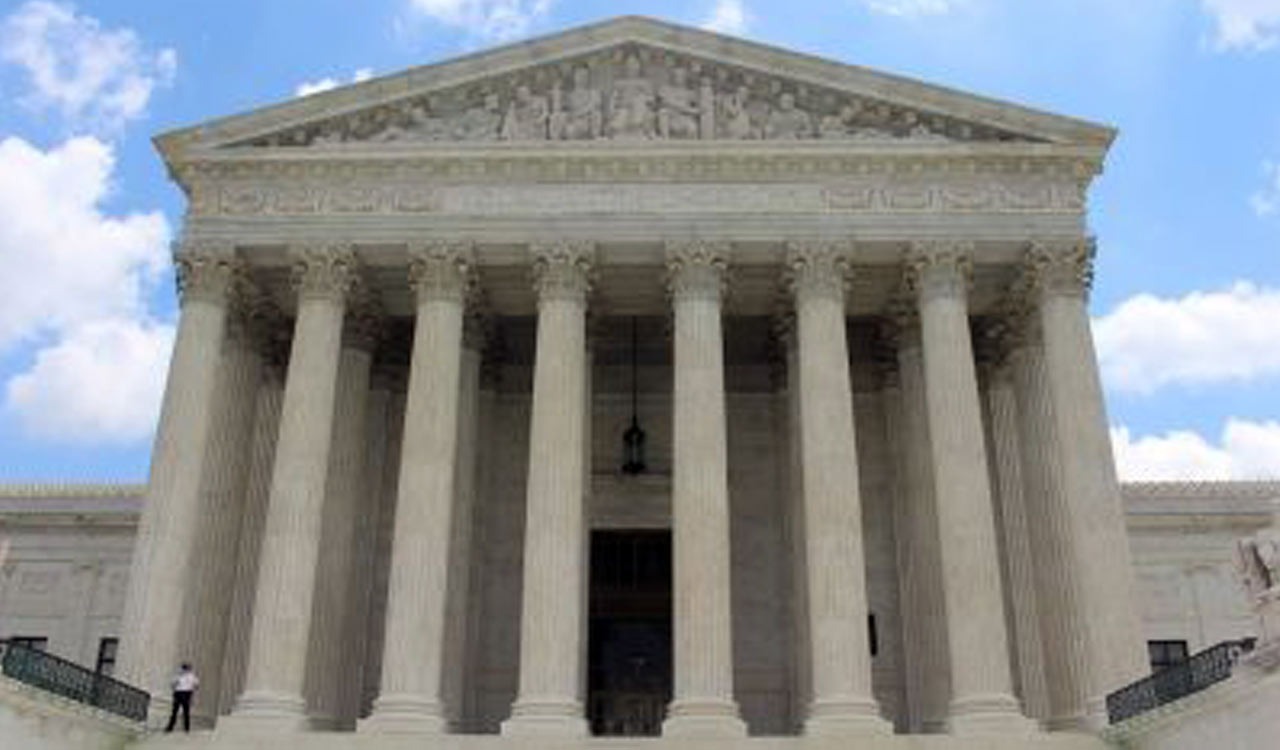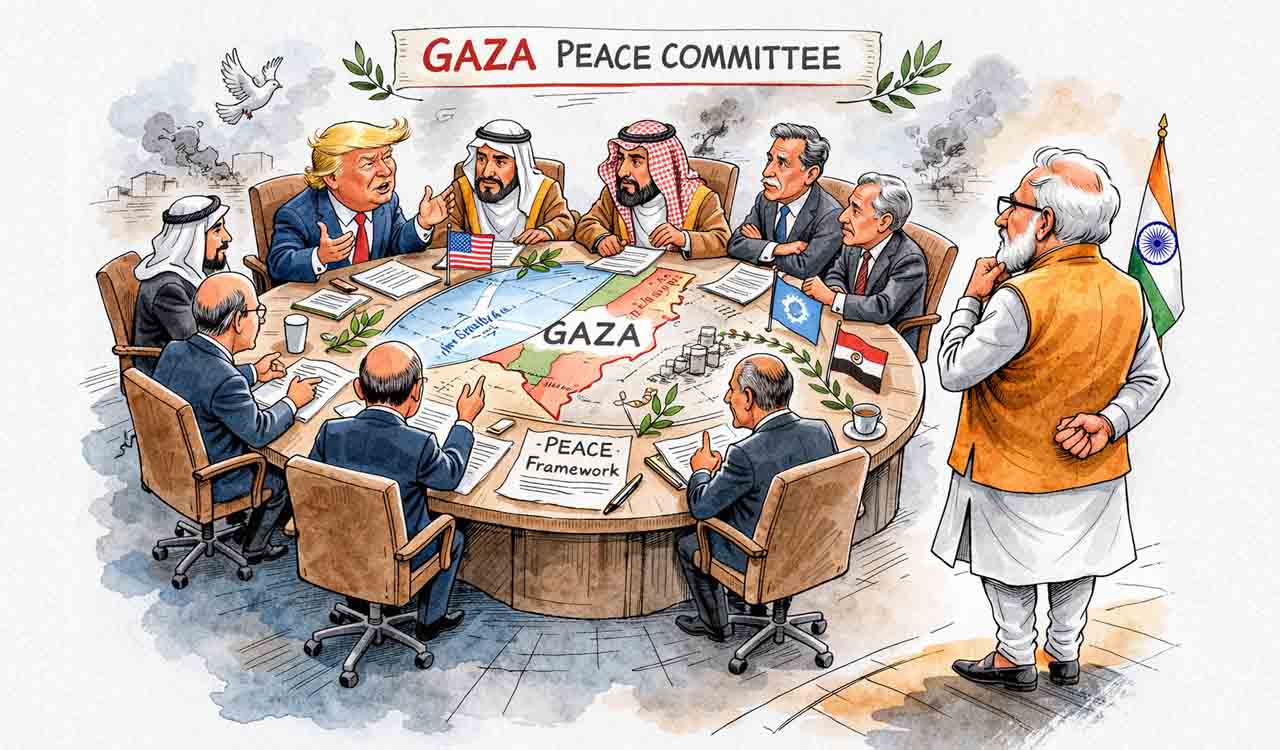Opinion: The peril of bluster politics — India’s silence on Palestine signals a dangerous drift
Spectacle may win elections, but it cannot solve crises — the world’s problems are complex, not theatrical props
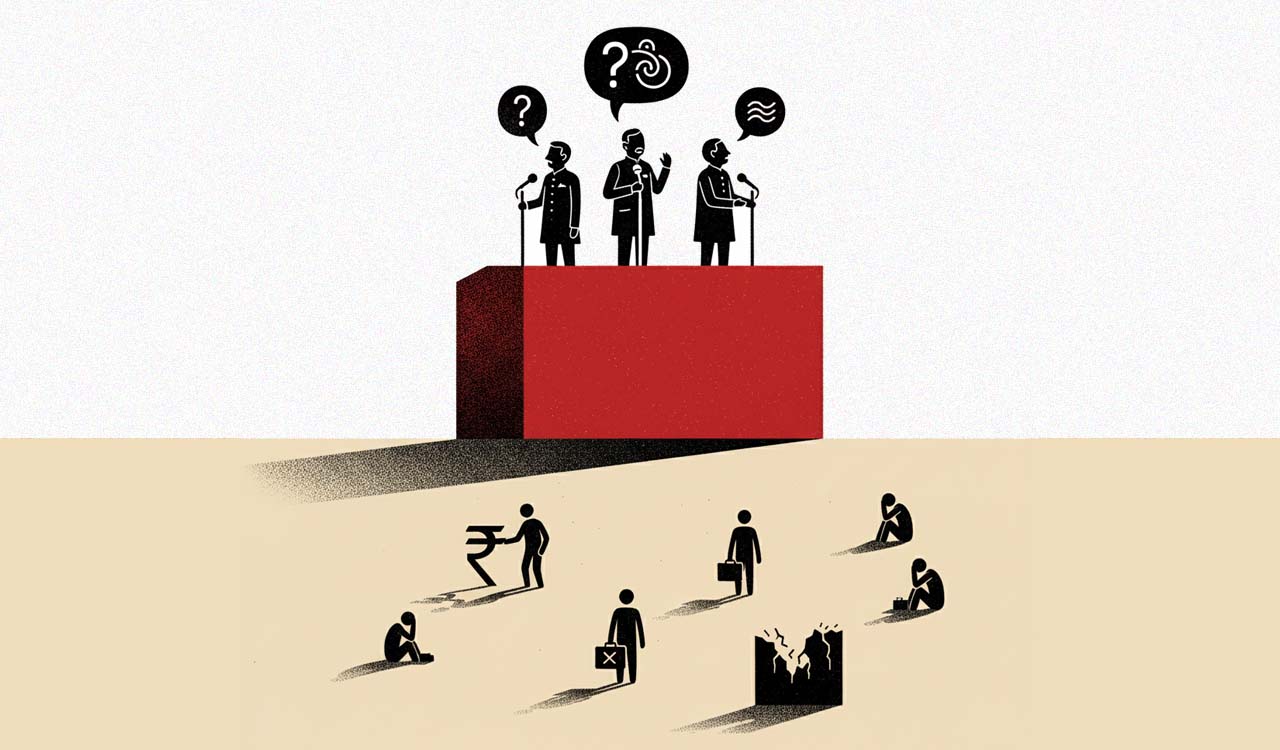
By Geetartha Pathak
Donald Trump’s rant at the UN recently was vintage Trump — loud, defiant, dismissive of science, contemptuous of allies, and steeped in conspiracy. He called global warming a hoax, mocked the Paris Accord as “fake,” demanded that NATO shoot down Russian planes, and lashed out at Europe for recognising Palestinian statehood.
Also Read
It would be easy to dismiss this as another spectacle. But here lies the danger: Trump’s politics of bluster is no longer an American eccentricity. It echoes in the style of leaders elsewhere — from Narendra Modi in India to Benjamin Netanyahu in Israel. Together, they are normalising a global playbook of unilateralism, militarised posturing, and selective silence on justice. If that becomes the dominant language of world politics, the consequences will be disastrous.
Empty Slogans
Trump thrives on simple villains and simple answers: immigrants are ruining Europe, climate change is a lie, and only brute force can keep order. The applause comes quickly, but governance crumbles under the weight of such empty slogans. The same temptation lurks elsewhere. Modi regularly wraps India’s complex challenges — unemployment, inequality, climate stress — in nationalist packaging. Netanyahu has long presented Israel’s survival as reducible to military might. What connects these leaders is not ideology but style: bluster as leadership, performance as policy. Spectacle may win elections. It cannot solve crises. Immigration, climate change, or Palestine are not theatrical props but complex problems. To govern them with slogans is to invite failure.
Trump’s tirade against Europe for recognising Palestine exposes the hollowness of this strongman politics. For decades, Palestinian statehood has been at the heart of international justice debates. Europe’s recognition is a belated attempt to honour that. Trump treats it as a betrayal. Here, India’s silence is telling.
In 1988, India became one of the first non-Arab states to recognise Palestine, a stance rooted in its anti-colonial legacy. In 1974, it had already recognised the PLO. But under Modi, New Delhi has grown conspicuously quiet on Palestine, even as European democracies step forward. Why? Modi’s personal rapport with Netanyahu and the deepening India-Israel defence and technology partnership have reshaped India’s diplomatic posture.
The result is a strategic silence that mirrors Trump’s disdain. India, once a moral voice for the oppressed, now stands awkwardly on the sidelines. This shift may serve short-term interests, but it erodes credibility and weakens the global coalition for justice.
Trump’s contempt for the UN — mocking its failures and boasting he solved problems it could not — is part of a broader erosion. Netanyahu regularly dismisses the UN and human rights bodies as biased. Modi prefers tightly scripted summits and bilateral deals that serve domestic optics, often bypassing traditional multilateral channels.
Strongmen, from Trump to Modi, may dominate headlines, but they cannot build the future. That task requires quieter virtues — cooperation, integrity, restraint
If the world’s biggest players treat multilateralism as optional, institutions will crumble. Without cooperation, climate goals will collapse. Without global rules, regional wars will spiral unchecked. Without international law, power replaces principle. That is the road to chaos.
Trump’s offhand suggestion that NATO nations should shoot down Russian aircraft was not just a rhetorical excess. It signals a worldview where military solutions are the first, not last, resort. Netanyahu has long leaned on military operations as political instruments. Modi, too, has used strikes and border skirmishes as proof of muscular leadership. This dramatic militarism lowers the threshold for conflict.
Once leaders realise bellicose talk boosts approval, they risk acting on it. Miscalculation becomes more likely. In Eastern Europe, the Middle East, or South Asia, such missteps could ignite wars no one can control.
Migrants as Sacpegoats
Trump scapegoats migrants. Netanyahu builds on perpetual siege. Modi fuels majoritarian pride. All three sharpen divides to consolidate power. But societies governed by polarisation become brittle. Minority rights weaken. Consensus vanishes. Trust erodes. When multiple democracies drift this way simultaneously, the world becomes more unstable. Authoritarian impulses spread. Diplomacy shrinks. Humanitarian norms collapse.
If Trump’s worldview — denial of climate science, hostility to migrants, contempt for multilateralism, glorification of force, silence on justice — becomes the standard, the future is grim. Without cooperation, the Paris Accord will unravel, and warming will accelerate. Wars will become harder to contain, easier to start. The UN and other bodies will fade into irrelevance, leaving disputes to brute force. Polarisation and scapegoating will hollow out democracies. Justice causes like Palestine will wither, fuelling anger and radicalisation. This is not speculation. It is already unfolding. From Gaza to Ukraine, from rising seas to refugee crises, the costs of unilateral bluster are plain to see.
The world is at a crossroads. One path follows Trump, Modi, Netanyahu — leaders who wield slogans like weapons, treat diplomacy as theatre, and reduce governance to personality cults. That path promises strength but delivers fragility. It normalises endless conflict and accelerates planetary peril.
The other path is harder. Rebuilding institutions, defending multilateralism, embracing complexity, and standing for justice even when inconvenient. It means recommitting to science on climate, to law on conflicts, to fairness on Palestine, and to restraint in military affairs. The truth is harsh: unless democracies resist the allure of Trump-style politics, the world risks sliding into permanent instability.
Strongmen may dominate headlines, but they cannot build the future. That task requires quieter virtues — cooperation, integrity, restraint. Trump’s UN rant was a reminder of what happens when bluster masquerades as policy. The greater danger is not Trump himself, but a world where his way of doing politics becomes the rule rather than the exception. That is a future humanity cannot afford.
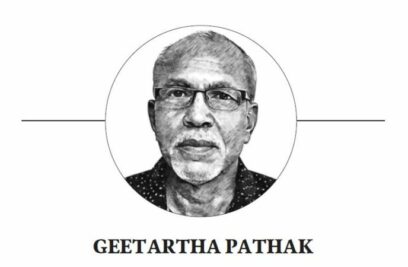
(The author is a senior journalist from Assam)
Related News
-
Six-month-old baby dies after expired medicine given in Narsingi
14 mins ago -
ACB registers DA case against officer in Nagarkurnool
18 mins ago -
BRS MLC Sravan exposes Rs.160 crore bunker bed procurement scam in KGBV Schools, demands comprehensive probe
32 mins ago -
Adilabad police launch Khaki Kids initiative to promote road safety, curb cyber crimes
38 mins ago -
CBIT celebrates SHRUTHI–2026 institute day in Hyderabad
49 mins ago -
Bird Honey Trap: Thieves use hen as bait to steal rooster in Kothagudem
1 hour ago -
Infant’s death after alleged caste abuse triggers unrest in Telangana’s Nagarkurnool
1 hour ago -
Vinod Kumar urges CM to ban Paraquat Dichloride sale in Telangana
1 hour ago

